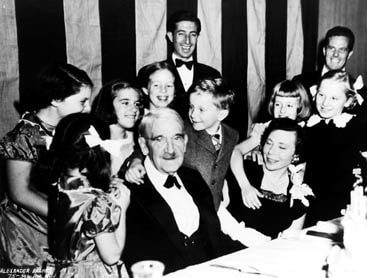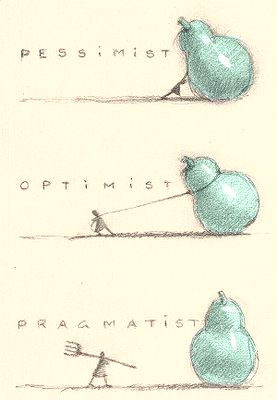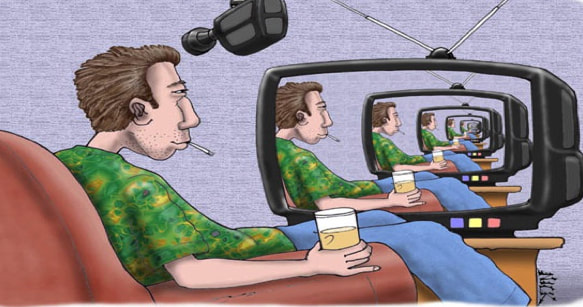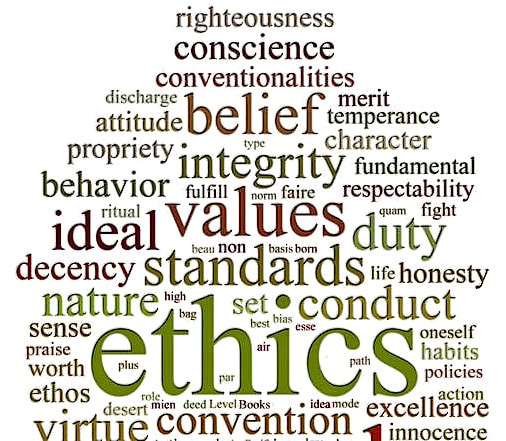What I'm teaching NOW:
Spring 2024:
Introduction to Philosophy: The Individual and the World (2 sections, online) -- Syllabus is HERE.
Fall 2023:
Introduction to Philosophy: The Individual and the World (online)
Propaganda -- syllabus is here.
What I've recently taught:
2022-23
Introduction to Philosophy: The Individual and the World (online)
Pragmatism: Classical American Philosophy.
Philosophy of Media and Technology -- syllabus is here.
2021-22
Introduction to Philosophy: The Individual and the World (online) -- Syllabus is HERE.
Philosophy of Media and Technology -- Syllabus is HERE.
Philosophy of Art and Aesthetics.
Spring 2021: Introduction to Philosophy: The Individual and the World -- Syllabus is here.
Fall 2020: Pragmatism: Classical American Philosophy -- Syllabus is here. Video Introduction, here. Or here, on YouTube.
Spring 2020: Introduction to Ethical Reasoning (focus: propaganda: Syllabus is here.)
Upper Division Classes
Aesthetics & the Philosophy of Artfall_2019_philosophy_of_art_syllabus_class_1.1.pdfThis course presents an introduction to the philosophy of art and aesthetics, a consideration of the many ways which art communicates and expresses: via artists’ creative processes, the object-events created (or "artworks"), and the audience’s ways of experiencing, interpreting, and evaluating art. In the course of this survey, a variety of problem-areas related to art may be considered: for example, what is a work of art? What is taste or beauty and who determines and justifies those standards? How is meaning conveyed by works of art and what methods of interpretation best reveal meaning? What is an aesthetic experience and why is it special? What are the social, political, and philosophical roles of art products and art criticism in contemporary society? Our attempts to grapple with these theories and problems will utilize as much actual art as possible through multimedia technology and, hopefully, field trips to local art sites.
Last offered: Fall 2019; COURSE SYLLABUS John Dewey (PHIL 4900)John Dewey (1859-1952) was one of the most important of the American philosophers of the twentieth century. A leading American Pragmatist (the first genuinely American school of philosophical thought), Dewey extended the application of his form of pragmatism (instrumentalism) beyond the boundaries of academic philosophy—into public affairs, politics, art, religion, and of course, education. Dewey’s influence included and transcended academia. As historian Henry Steele Commager wrote of Dewey, “It is scarcely an exaggeration to say that for a generation [of Americans] no major issue was clarified until Dewey had spoken.”
While Dewey published more than forty books and hundreds of articles over his long career, this course look closely at his masterwork, Experience and Nature (1927). This is arguably Dewey’s most comprehensive and difficult work as it attempts to lay out a comprehensive account of human experience with metaphysical detail. Along the way, we will find Dewey helping to explain such fundamental aspects as the nature of existence, consciousness, communication, moral value, knowledge, and aesthetic experience. Our goal is to see what is unique and coherent in Dewey’s philosophical vision by grasping a reasonably detailed outline of this historically significant masterpiece. Last offered: Fall 2012; COURSE SYLLABUS |
Pragmatism:
|
Spring 2019:The Philosophy of
|
Lower Division Classes
Philosophy 1012: Relationship of the Individual to the World
One reason philosophy fascinates people is that it investigates everyday life in ways that are deeper and more systematic than most other disciplines. Philosophy often changes the way you look at something, forever and asks questions which, on their face, seem too big to ask: What makes life meaningful? Can human reasoning prove the existence of a supreme being? How is knowledge possible? Could reality simply be made up of ideas?
This class will ask such questions and review various proposals to answering them. Figures to be discussed include Plato, Anselm, Descartes, Berkeley, De Beauvoir, and others. The class will be run seminar-style, with an emphasis on discussion and close-reading of texts. Recent offering: 2015 (COURSE SYLLABUS) |
Philosophy 1020: Introduction to Ethical Reasoning
All who live in this world must choose what to do. Yet to live in the world we must live with people. When we make choices involving people we are engaged in ethical reasoning.
Ethical debates arise from those situations where there is disagreement about: 1) how we should treat others and 2) the reasons (or arguments) for treating them in one-way rather than another. This course will examine specific ethical theories as well as more concrete issues such as abortion, drug use, consumerism, and the moral standing of animals. Our goal will be to gain a better understanding by reading, thinking, and talking carefully and critically. Recent offering, 2013 (COURSE SYLLABUS) |
Philosophy 1111: Know Thyself: Philosophy and the Question of Life's Meaning
Does life have meaning? This deceptively simple question will provide our entry point into philosophy. We will read and discuss a number of writers, from Plato to the present, who, in considering the relationship of the individual to the world also raise the question of the meaning of life.
Discussions will tackle issues regarding character and the good life, death and suicide, advertising and consumerism, and the impact religion and science can have on meaningfulness. The course will have four main sections: (a) Living Meaningfully without God(s), (b) Suffering, Absurdity, and God, (c) Pleasure vs. Happiness, and (d) The Meaningful life as the Examined Life: Socrates as Exemplar. Recent offering: 2012; (COURSE SYLLABUS) |
Courses Taught at University of Colorado Denver
2021
21 SPR PHIL 1012-002 INTRODUCTION TO PHILOSOPHY: THE INDIVIDUAL AND THE WORLD
2020
20 FALL - PHIL 4101/5101-001 PRAGMATISM: CLASSICAL AMERICAN PHILOSOPHY
20 SPR PHIL 1020-004 INTRODUCTION TO ETHICAL REASONING
2019
19 FALL -PHIL 4220/5220/HUM 5220 -- AESTHETICS/PHILOSOPHY OF ART
19 SPR - PHIL-4920/5920-001 ---- PHILOSOPHY OF MEDIA & TECHNOLOGY
2018
18 FALL PHIL 1012-002 INTRODUCTION TO PHILOSOPHY: THE INDIVIDUAL AND THE WORLD
18 FALL on sabbatical
2017
17 FALL - PHIL 4101/5101-001 PRAGMATISM: CLASSICAL AMERICAN PHILOSOPHY
17 SPR - PHIL 4220/5220/HUM 5220 -- AESTHETICS/PHILOSOPHY OF ART
2016
16 FALL - PHIL 1012 INTRODUCTION TO PHILOSOPHY: THE INDIVIDUAL AND THE WORLD
16 SPRING - PHIL 4101/5101-001 PRAGMATISM: CLASSICAL AMERICAN PHILOSOPHY
2015
15 FALL - PHIL 1012-002 INTRODUCTION TO PHILOSOPHY: THE INDIVIDUAL AND THE WORLD
15 SPRING - PHIL 1020 INTRODUCTION TO ETHICAL REASONING
2014
14 FALL - PHIL 4220/5220/HUM 5220 -- AESTHETICS/PHILOSOPHY OF ART
14 SPRING - PHIL 4101/5101-001 -PRAGMATISM: CLASSICAL AMERICAN PHILOSOPHY
2013
13 FALL - PHIL 1020-001 --- INTRODUCTION TO ETHICS AND SOCIETY
13 SPR - PHIL-4920/5920-001 ---- PHILOSOPHY OF MEDIA & TECHNOLOGY
2012
12 Fall PHIL 1111: Freshman First Year Seminar
12 Fall PHIL 4900/5900: Dewey
12 SPR - PHIL 1020 --- INTRODUCTION TO ETHICS AND SOCIETY
MAYMESTER 12 SPR - PHIL 4220/5220 AESTHETICS/PHILOSOPHY OF ART
2011
11 Fall ---- PHIL-1012-004 ---- INTRODUCTION TO PHILOSOPHY: RELATIONSHIP OF THE INDIVIDUAL TO THE WORLD
11 Fall ---- PHIL-4101/5101-001 ---- PRAGMATISM: CLASSICAL AMERICAN PHILOSOPHY
11 SPR - PHIL 1020-007 --- INTRODUCTION TO ETHICS AND SOCIETY
11 SPR - PHIL 4220/5220/HUM 5220 -- AESTHETICS/PHILOSOPHY OF ART
2009-10
10 SPR ---- PHIL-1020-005 ---- INTRODUCTION TO ETHICS AND SOCIETY
10 SPR ---- PHIL-1020-007 ---- INTRODUCTION TO ETHICS AND SOCIETY
10 SPR ---- PHIL-4920-001 ---- PHILOSOPHY OF MEDIA & TECHNOLOGY
09 FALL ---- PHIL-4220-001 ---- AESTHETICS/PHILOSOPHY OF ART
2008-09
09 SPR ---- PHIL-1020-005/006 (two sections) ---- INTRODUCTION TO ETHICS AND SOCIETY
09 SPR ---- PHIL-4101-001 ---- PRAGMATISM: CLASSICAL AMERICAN PHILOSOPHY
08 FALL ---- PHIL-1012-002 ---- INTRODUCTION TO PHILOSOPHY: RELATIONSHIP OF THE INDIVIDUAL TO THE WORLD
08 FALL ---- PHIL-4740-001 ---- EMPIRICISM
2007-08
08 SPR ---- PHIL-1020-001 ---- INTRO TO ETHICS & SOCIETY
08 SPR ---- PHIL-4812-001 ---- ST: PHILOSOPHY OF ART
07 FALL ---- PHIL-1012-002 ---- INTRODUCTION TO PHILOSOPHY: RELATIONSHIP OF THE INDIVIDUAL TO THE WORLD
07 FALL ---- PHIL-4101-001 ---- PRAGMATISM: CLASSICAL AMERICAN PHILOSOPHY
2006-07
07 SUM ---- PHIL-1020-001 ---- INTRO TO ETHICS & SOCIETY
07 SPR ---- PHIL-1020-001 ---- INTRO TO ETHICS & SOCIET
06 FALL ---- PHIL-1012-002 ---- INTRODUCTION TO PHILOSOPHY: RELATIONSHIP OF THE INDIVIDUAL TO THE WORLD
06 FALL ---- PHIL-4812-001 ---- SP TPCS: PHILOSOPHY OF MEDIA AND TECHNOLOGY
2005-06
06 SPR ---- PHIL-1020-001 ---- INTRODUCTION TO ETHICS AND SOCIETY
06 SPR ---- PHIL-1020-005 ---- INTRODUCTION TO ETHICS AND SOCIETY
06 SPR ---- PHIL-4812-001 ---- ST: DEWEY
05 FALL ---- PHIL-1012-002 ---- INTRODUCTION TO PHILOSOPHY: RELATIONSHIP OF THE INDIVIDUAL TO THE WORLD
05 FALL ---- PHIL-4740-001 ---- EMPIRICISM
2004-05
05 SPR ---- PHIL-1020-001 ---- INTRODUCTION TO ETHICS AND SOCIETY
05 SPR ---- PHIL-4102-001 ---- ST: AMERICAN ETHICS
04 FALL ---- PHIL-1012-003 ---- INTRODUCTION TO PHILOSOPHY: RELATIONSHIP OF THE INDIVIDUAL TO THE WORLD
04 FALL ---- PHIL-4812-001 ---- ST: PHILOSOPHY OF MEDIA AND TECHNOLOGY
2003-04
04 SUM ---- PHIL-1020-002 ---- INTRODUCTION TO ETHICS AND SOCIETY
04 SPR ---- PHIL-2441-001 ---- LOGIC AND LANGUAGE: GT
04 SPR ---- PHIL-3360-001 ---- EPISTEMOLOGY
04 SPR ---- PHIL-4101-001 ---- PRAGMATISM: CLASSICAL AMERICAN PHILOSOPHY
03 FALL ---- PHIL-1012-003 ---- INTRODUCTION TO PHILOSOPHY: RELATIONSHIP OF THE INDIVIDUAL TO THE WORLD
03 FALL ---- PHIL-4740-001 ---- EMPIRICISM
Past Courses, prior to UNIVERSITY OF COLORADO DENVER, selected
Upper Division:
American Philosophy
Ancient Philosophy
Pragmatism and Existentialism
Philosophy of Media and Technology
Academic and Professional Ethics (graduate level)
Animal Rights, Animal Wrongs: The Morality, Politics, and Aesthetics of Meat
Medical Ethics
Business Ethics
Environmental Ethics
Lower Division
The Meaning of Life
Contemporary Moral Issues
Contemporary Moral Issues (Phl 220)
Humanities 101 (Homer to Dante)
Humanities 102 (Machiavelli to King)
Some things you may not know about Philosophy.
A lot of people have not heard of "philosophy" before they get to college.
What does philosophy cover? A lot more than you think.
Philosophy covers a very wide range of topics! Look!
Many think that if they’re interested in MIND and CONSCIOUSNESS and HAPPINESS they have to take Psychology to learn about that. Philosophy’s got that covered.
Many think that if they’re interested in LEARNING and KNOWLEDGE they have to take Education to learn about that. Philosophy’s got that covered.
Many think that if they’re interested in INTERPRETATION, ARTS, or LITERATURE they have to take Visual Arts or English to learn about that. Philosophy’s got that covered.
Many think that if they’re interested in TIME and REALITY they have to take Physics to learn about that. Philosophy’s got that covered.
Many think that if they’re interested in RACE, SEX, or GENDER they have to take Sociology to learn about that. Philosophy’s got that covered.
Many think that if they’re interested in GOD and RELIGION they have to take Religious Studies or Sociology to learn about those. Philosophy’s got that covered.
Many think that if they’re interested in POLITICS and JUSTICE think they have to take Public Affairs or Political Science to learn about that. Philosophy’s got that covered.
Many think that if they’re interested in SCIENCE and TECHNOLOGY think they have to take a History or Communication to learn about those. Philosophy’s got that covered.
Many think that if they’re interested in BUSINESS ethics think they have to take a Business class to learn about that. Philosophy’s got that covered.
These are just some examples of the many areas philosophy takes on! Take a look at our CATALOG to see the full picture!
A lot of people have not heard of "philosophy" before they get to college.
What does philosophy cover? A lot more than you think.
Philosophy covers a very wide range of topics! Look!
Many think that if they’re interested in MIND and CONSCIOUSNESS and HAPPINESS they have to take Psychology to learn about that. Philosophy’s got that covered.
- PHIL 4300 - Philosophy of Mind: Consideration of the problems in the philosophy of mind, such as the mind-body problem, the problem of our knowledge of other minds, the compatibility of free will and determinism, and discussion of such concepts as action, intention, motive, desire, enjoyment, memory, imagination, dreaming and self-knowledge.
- PHIL 3030 - Philosophies of the Good Life & Happiness: Examines concepts and theories of happiness and their application in everyday living as discussed by major philosophers since antiquity (e.g., Aristotle, Kant, Nietzsche). Also considers critiques of Happiness (e.g., Freud, Schopenhauer).
Many think that if they’re interested in LEARNING and KNOWLEDGE they have to take Education to learn about that. Philosophy’s got that covered.
- PHIL 3360 – Epistemology: Study of major theories of knowledge, including such problems as perception and the distinction between belief and knowledge.
Many think that if they’re interested in INTERPRETATION, ARTS, or LITERATURE they have to take Visual Arts or English to learn about that. Philosophy’s got that covered.
- PHIL 4730 - Philosophy and Literature: Considers the philosophical dimensions of literature.
- PHIL 5220 - Aesthetics and the Philosophy of Art: Introduction to major theories of aesthetics and contemporary discussions of problems in aesthetics and the philosophy of art, including topics such as: the nature of art, interpretation and evaluation in art.
Many think that if they’re interested in TIME and REALITY they have to take Physics to learn about that. Philosophy’s got that covered.
- PHIL 3350 - Metaphysics: Studies major theories of reality, including topics such as the nature of substance, space and time, and universals and particulars.
Many think that if they’re interested in RACE, SEX, or GENDER they have to take Sociology to learn about that. Philosophy’s got that covered.
- PHIL 3500 - Ideology and Culture: Racism and Sexism: Surveys the nature and role of racism and sexism. Topics may include ideology theory, naturalism, the equal protection clause, recent scientific discussion, sociolegal history, and social constructionism.
- PHIL 4500 - Feminist Philosophy: Seminar on key debates & figures in historical & contemporary feminist philosophy. Topics may include: rights, embodiment, gender, sexuality, race, reason, & violence. Figures may include: Wollstonecraft, Stanton, Beauvoir, Judith Butler, and bell hooks.
Many think that if they’re interested in GOD and RELIGION they have to take Religious Studies or Sociology to learn about those. Philosophy’s got that covered.
- PHIL 4600 - Philosophy of Religion: Nature of religion and methods of studying it.
Many think that if they’re interested in POLITICS and JUSTICE think they have to take Public Affairs or Political Science to learn about that. Philosophy’s got that covered.
- PHIL 3200 - Social and Political Philosophy: Examines basic issues in social and political philosophy, including justice, freedom, individuality, power and community.
Many think that if they’re interested in SCIENCE and TECHNOLOGY think they have to take a History or Communication to learn about those. Philosophy’s got that covered.
- PHIL 3340 - Investigating Nature: Introduction to the Philosophy of Science: This course is designed to introduce students to the Philosophy of Science. (No background in philosophy is required.) Philosophy of Science is concerned with how best to use observation and experiment to learn about the world, whether we are investigating fundamental physical structures, the complex operations of biological organisms, or the social dynamics of human groups. Drawing on both historical and contemporary works, we will seek to understand, among other topics, what makes scientific inquiry distinct from other forms of human learning, what accounts for the credibility and objectivity of scientific claims, the influence of psycho-social biases on observation and theory formation, as well as whether accepting a scientific theory, explanation or hypothesis means that we think it is true.
- PHIL 4350 - Philosophy of Science: This course examines some of the central philosophical questions concerning the nature of scientific investigation, such as the logical relation of evidence to hypothesis, the objective adjudication of competing hypotheses, the logical function of modeling in empirical inquiry, the criterion for a classificatory system to underwrite induction and explanation, the explanatory relationships between the differing sciences, as well as the theoretical and pragmatic function of scientific law and its relationship to explanation.
- PHIL 4920 - Philosophy of Media and Technology: A philosophical examination of interrelationships between contemporary media, technology, and their impacts upon character of contemporary life and values. Topics may include ethics, epistemology, democracy, advertising, media literacy and criticism.
Many think that if they’re interested in BUSINESS ethics think they have to take a Business class to learn about that. Philosophy’s got that covered.
- PHIL 3250 - Business Ethics: Surveys some of the major moral problems which arise in business, such as the nature and scope of the moral responsibilities of corporations, affirmative action, and truth in advertising. Begins with a study of moral reasoning, ethical theory, and the challenges of applying ethical theory.
These are just some examples of the many areas philosophy takes on! Take a look at our CATALOG to see the full picture!







